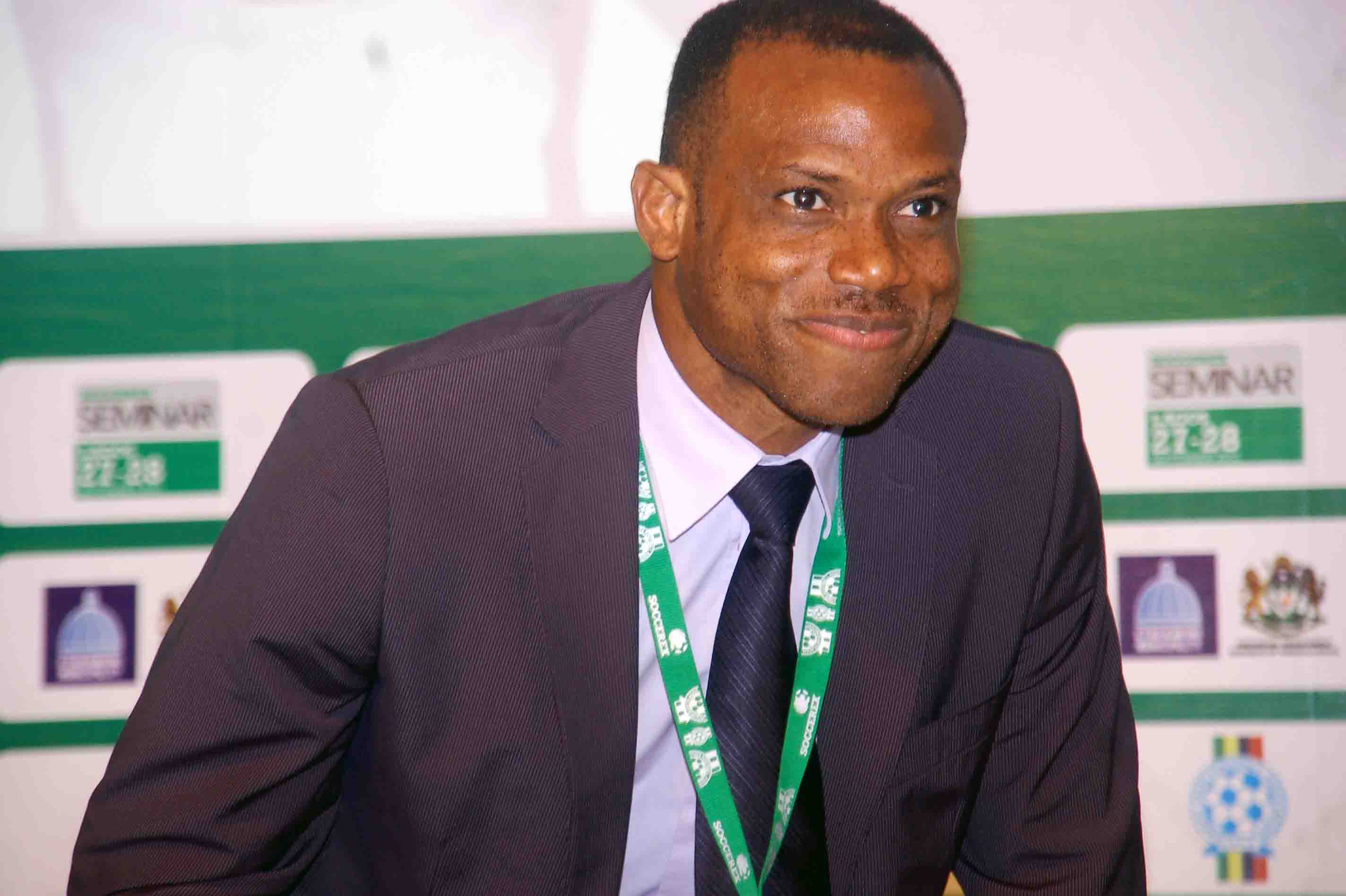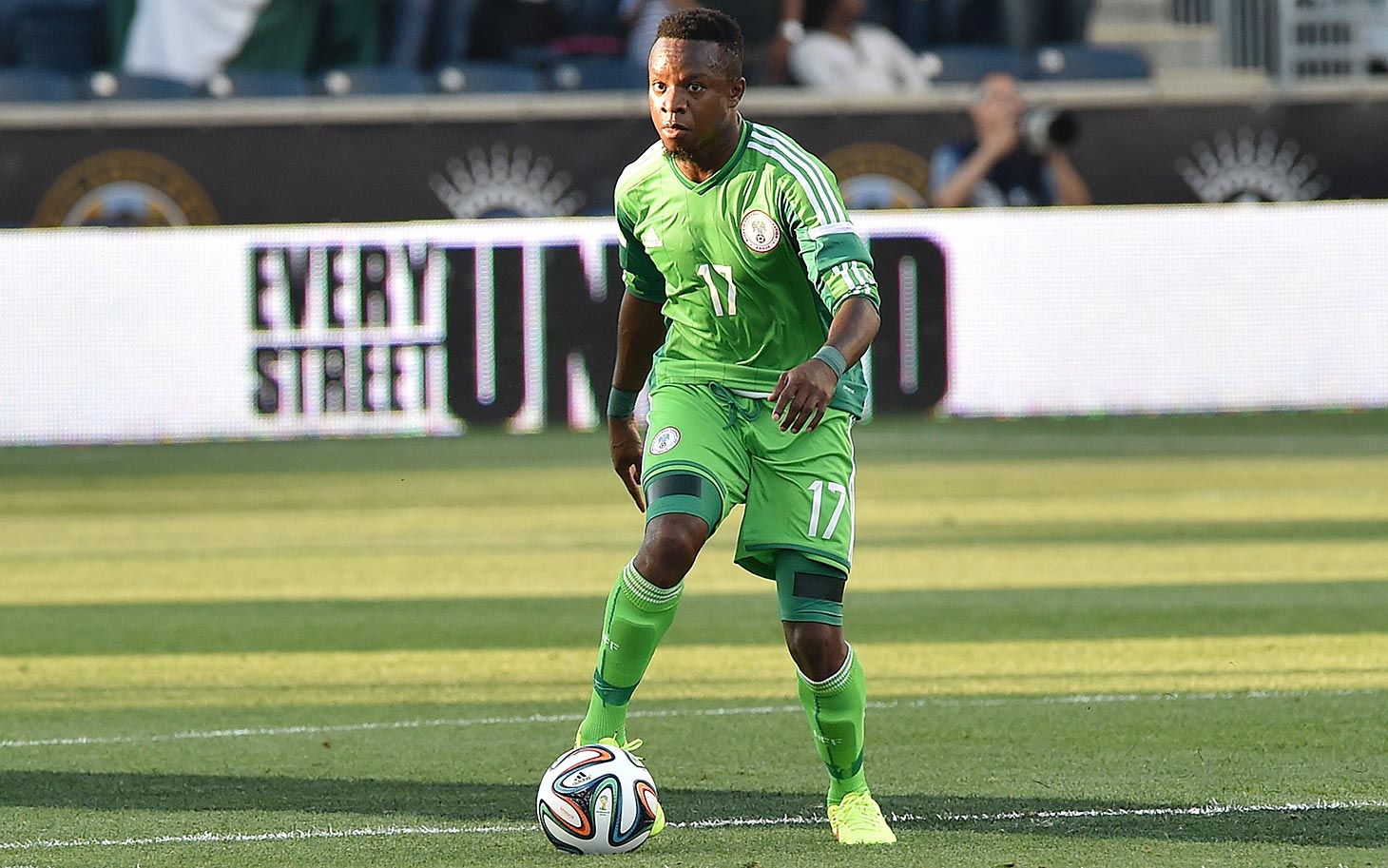DR Congo humiliated the Super Eagles of Nigeria in an international friendly on Thursday, beating the Sunday Oliseh crisis-hit team 2-0.
Tough questions are being asked from the Nigeria technical crew over the lackluster display of the Super Eagles with a section of football lovers hinting that the event that led to the untimely retirement of goalkeeper Vincent Enyeama is partly responsible for the defeat.
One of the questions raised is the choice of 22-year-old Ahmed Musa as the skipper of the team following the untimely retirement of Vincent Enyeama. The choice of Jos-born Musa as captain of the team, Ogenyi Onazi and Elderson Echiéjilé as Vice-captains ahead of more-established players like John Mikel Obi and Emmanuel Emenike has been criticised by some fans.
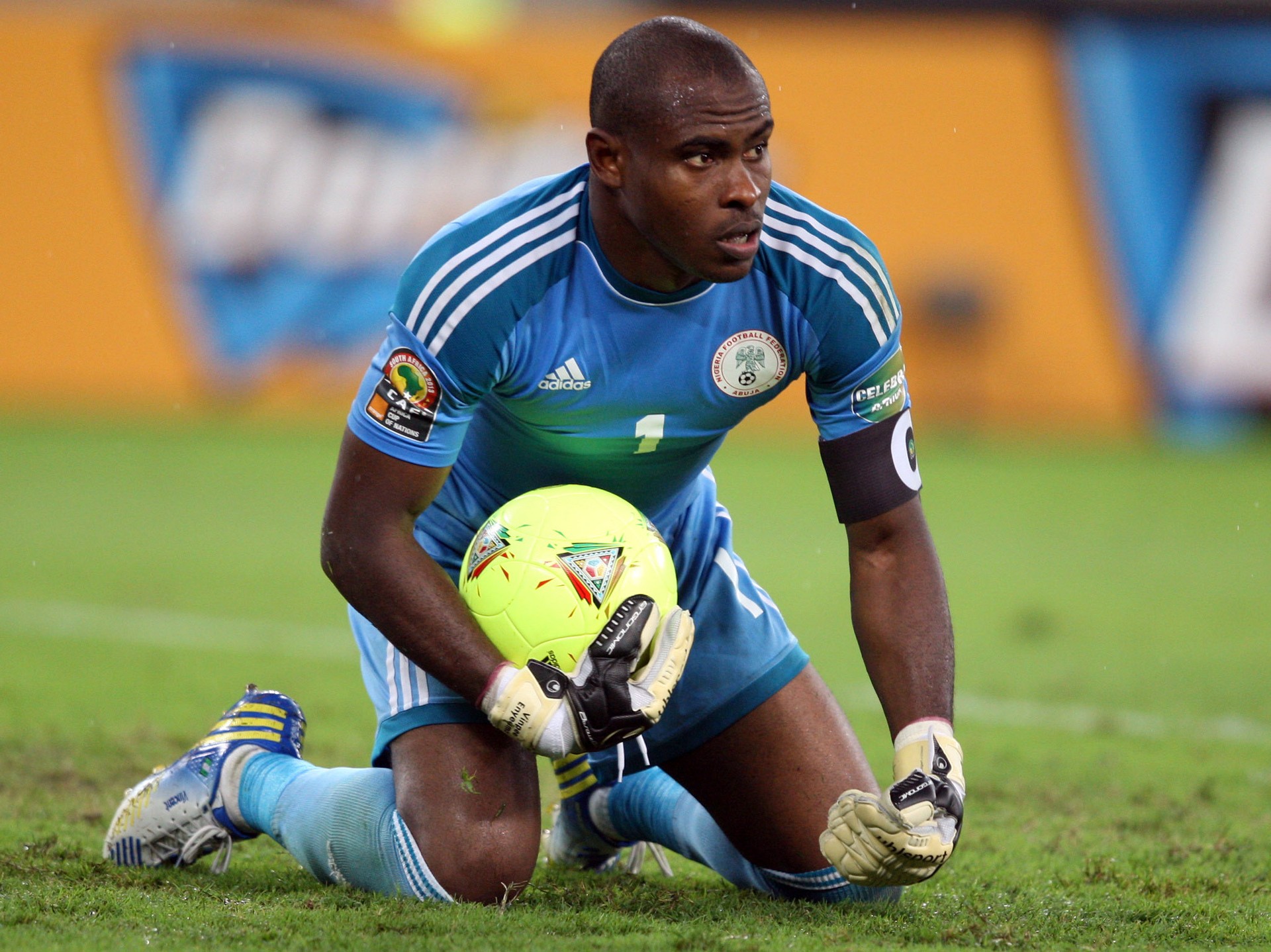
Ahmed Musa (Debut: 2010; Apps: 53; Goal: 11; Age:22)
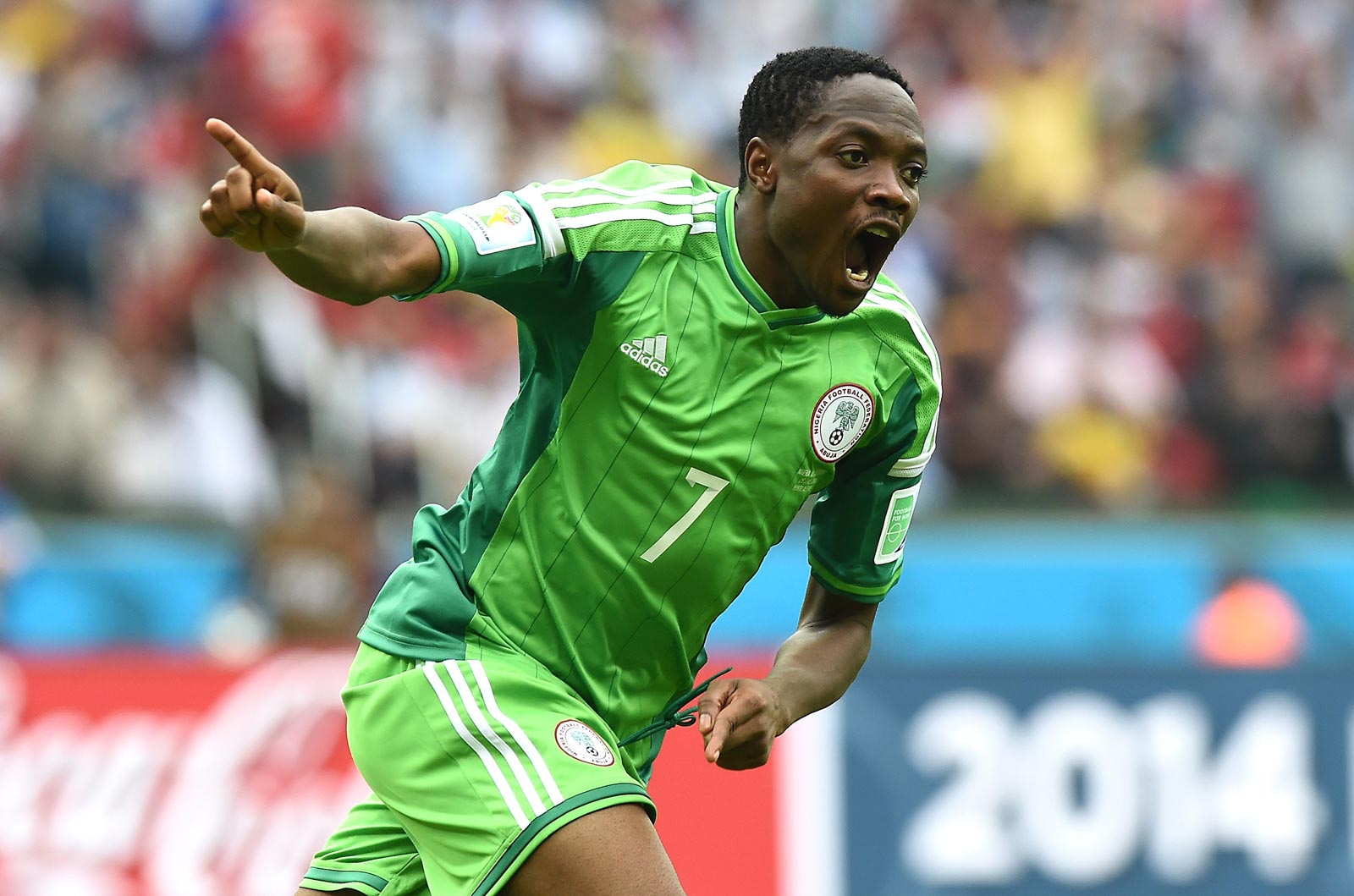
On 5 August 2010, at the age of 17, Musa made his debut for the Nigeria senior team in a qualification match for the 2012 Africa Cup of Nations against Madagascar, where he came on as a substitute for John Obi Mikel in a 2-0 win.Musa scored his first goal for the Super Eagles in a March 2011 friendly against Kenya.
In April 2010 under Coach Lars Lagerbäck, he was called up to join the Nigeria national football team camp prior to the 2010 FIFA World Cup in South Africa after helping the Nigerian team win in the 2010 WAFU Nations Cup where he scored a goal against Benin. In the same tournament against Burkina Faso, Musa’s goal deep into extra-time shot Nigeria into the finals of the tournament in Abeokuta. He was however forced out of the Super Eagles’ 30-man World Cup roster due to an ankle injury.
Ogenyi Onazi (Debut: 2012; Apps: 27; Goal:1; Age:22)
As a 16-year-old, Onazi represented his country at the 2009 FIFA U-17 World Cup, where Nigeria finished runners-up.
However, Onazi was overlooked for selection at the 2011 FIFA U-20 World Cup two years later, despite participating in the training camps in Portugal and Panama.
He made his debut for the senior Nigeria national team in an African Cup of Nations qualification match against Liberia.
Onazi’s first goal came in just his second international match, a 3-1 friendly win over Venezuela in Florida.
He was called up to Nigeria’s 23-man squad for the 2013 Africa Cup of Nations. Onazi came on as a substitute in Nigeria’s first match of the tournament against Burkina Faso, whom they would eventually face again in the final. Notably, Onazi played every minute of all Nigeria’s games in the knockout phase, including the final.
He was selected for Nigeria’s squad at the 2013 FIFA Confederations Cup. but missed out of the tournament as he suffered a slight knee knock a few weeks before the competition.
Onazi was named in Nigeria’s final squad for the 2014 FIFA World Cup in Brazil and started in all four games as Nigeria finished second in their group and were eliminated by France at the Round of 16.
Elderson Echiéjilé (Debut: 2009; Apps:45; Goals:2; Age:27)
Echiéjilé was a member of the Nigerian under-20 team at the 2007 FIFA World Cup in Canada, playing five matches and scoring once.
Having made his debuts for the senior side in 2009, he was picked for the following year’s FIFA World Cup in South Africa, appearing in two group stage matches in an eventual group stage exit.
Echiéjilé was called up to Nigeria’s 23-man squad for the 2013 Africa Cup of Nations, scoring the first in a 4-1 semi-final win over Mali as the nation went on to win the tournament. Also that year he was selected for the FIFA Confederations Cup in Brazil, scoring in the group stage opener against Tahiti.
Echiéjilé was included in Stephen Keshi’s list for the 2014 World Cup, but sustained an injury in a warm-up game against Greece and was replaced by Ejike Uzoenyi.
Emmanuel Emenike (Debut:2011; Apps:37; Goals:16; Age:28)
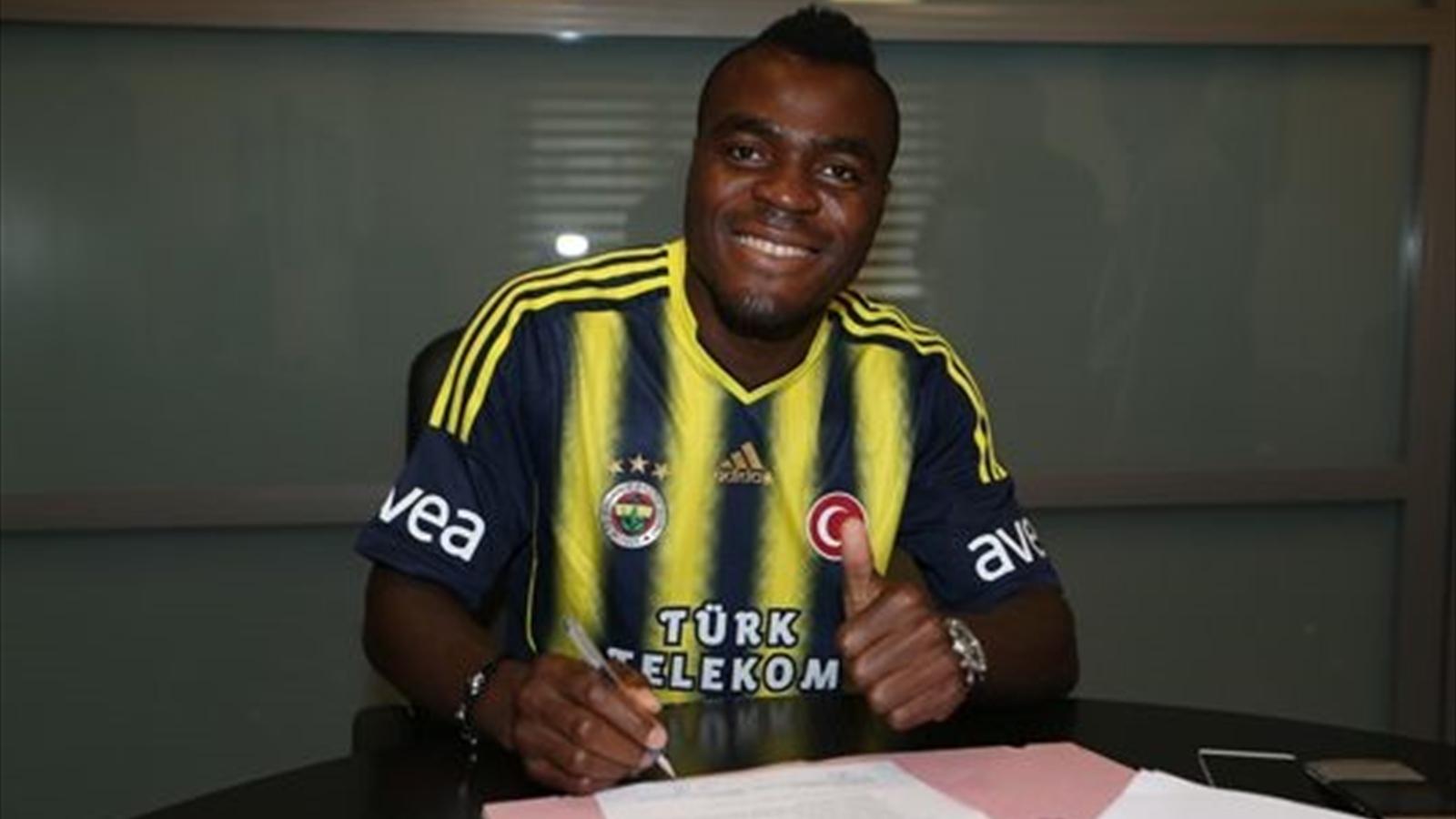
Emenike was called up to the Nigeria national football team for a friendly against Sierra Leone. He was called up to Nigeria’s 23-man squad for the Africa Cup of Nations.
On 21 January 2013, he scored in Nigeria’s opening AFCON match against Burkina Faso in a 1-1 draw. He also scored the first goal in the quarter final match between Nigeria and Côte d’Ivoire which Nigeria won 2-1. On 3 February, Emenike scored a 30-yard free kick giving his country a 2-1 win over Côte d’Ivoire in the African Cup of Nations.
In 2013, he became part of the third Nigerian team to win the African Cup of Nations – Nigeria’s first continental victory since 1994. His four goals proved crucial to Nigeria’s progress through the tournament, and he was named to the team of the African Cup of Nations Team of the Tournament.
However, Emenike wasn’t included in the final, due to a thigh injury. He also received the Pepsi Tournament Top Scorer, with four goals, along with Ghana’s Wakaso Mubarak.
In March 2013, Emenike was left out of the Nigerian squad for the World Cup qualifier, due to hamstring injury, which Emenike criticised Nigeria’s coach and officials of ignoring him.
Nigeria’s Emmanuel Emenike is challenged by France’s Patrice Evra and Yohan Cabaye.
In June 2013, Emenike wasn’t included for Nigeria’s squad at the 2013 FIFA Confederations Cup. After four month without being called up, Emenike was called up for August’s Mandela Cup friendly match but did not participate due to injury.
Emenike celebrated his absence from Eagles in Sept 2013 when he played in the 2014 world cup qualifier against Malawi – played in Calabar. He scored a goal in the two-nil win by the Super Eagles – a win which took them to the final round of world cup qualifiers. He came on as a substitute three days later in a friendly match against Burkina Faso, played in Kaduna – he scored the fourth goal in a 4-1 win for the Eagles.
On October 13, 2013, in the first-leg of last round of the World Cup qualifier against Ethiopia, he scored twice to give the Super Eagles a 2-1 lead going into the second-leg
John Obi Mikel (Debut:2006; Apps:66; Goals:4; Age:28)
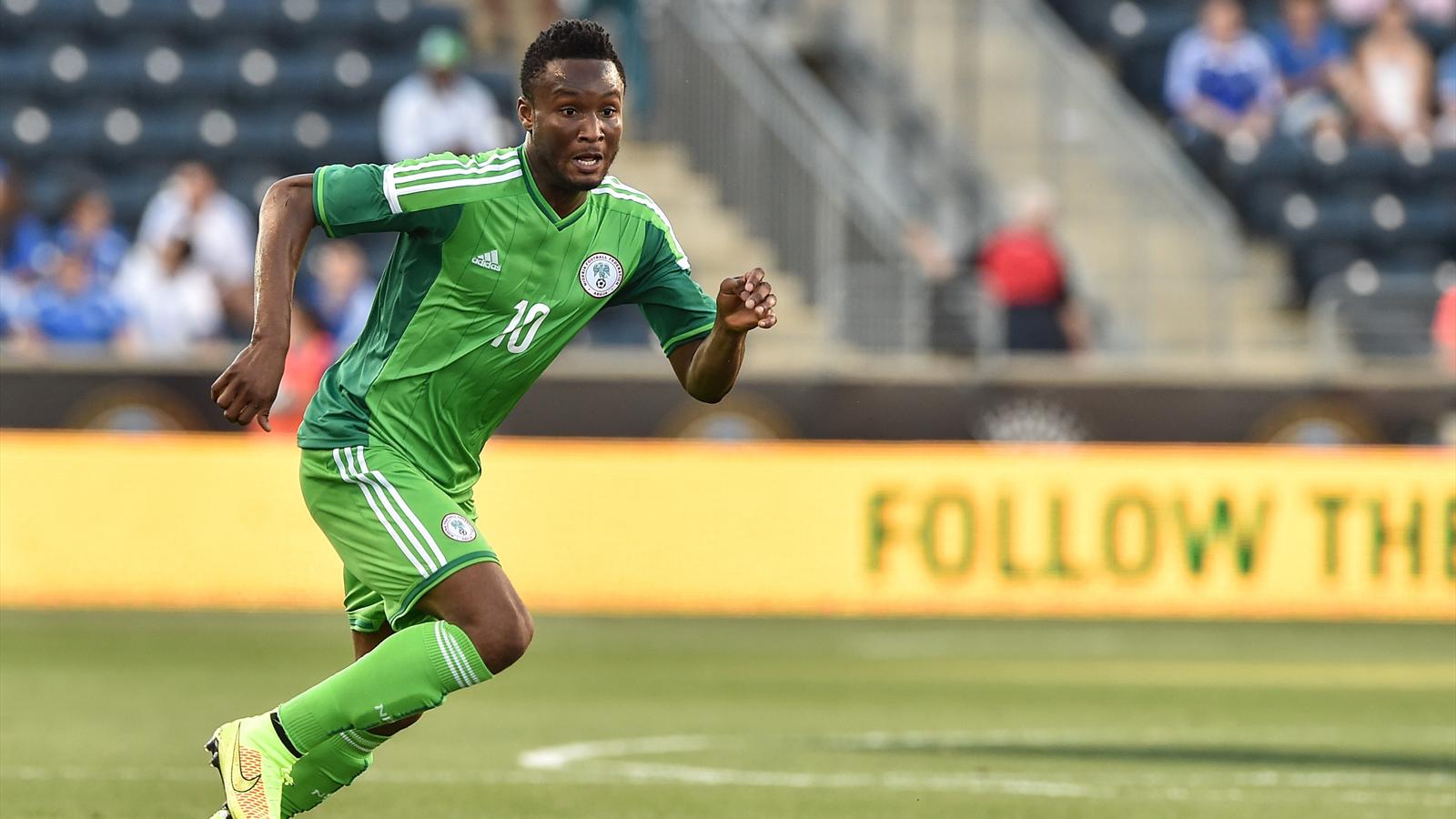
Mikel represented the Nigeria under-20 team at the 2005 FIFA World Youth Championship and won the Silver Ball for the second-best player at the tournament (behind Lionel Messi) as the Africans finished runner-up to Argentina.
He made his debut for the Nigeria senior team on 17 August 2005, when he came on as a second-half substitute in a 1-0 friendly win over Libya. He did not play for the national team again prior to being named in the squad for the 2006 Africa Cup of Nations.
In Nigeria’s first group game, which was against Ghana, Mikel was an unused substitute. However, he was introduced into the second game, against Zimbabwe, early in the second half. Within ten minutes of coming on, he had supplied both the corner that resulted in Christian Obodo heading the game’s opening goal, and scored Nigeria’s second goal. He made his first international start in Nigeria’s final group game, a 2-1 victory over Senegal.
In 2007, Mikel was suspended from all Nigerian national teams after manager Berti Vogts dropped Mikel from the team’s squad for the Africa Cup of Nations qualifier against Niger, for failing to attend their previous match against Uganda.
Mikel cited an injury, but because he did not attend an independent check by Nigerian officials, he was dropped. This, and his refusal to play for the Nigerian under-23 side resulted in his suspension by the Nigerian Football Association. After apologising, he was called up to the national squad for the 2008 Africa Cup of Nations in Ghana.
At the tournament, he scored one goal and registered one assist in a match against Benin, to help Nigeria qualify for the quarter-finals against hosts Ghana, where they lost 2-1 to their West African rivals.
Mikel had been called up for the Under-23 side in preparation of the team’s last Olympic qualifier on 26 March 2008, needing a win to qualify.
His failure to show up for any of the qualifiers again setting off some controversy with the U-23 team coach Samson Siasia, who dropped him from the Olympic squad amidst significant furor from the media.
On 5 June 2010, Mikel was ruled out of the 2010 FIFA World Cup in South Africa due to injury. He had been struggling to recover from a knee problem after undergoing surgery in May, though there were also reports that an ankle injury was to blame for Mikel’s withdrawal.
At the 2013 Africa Cup of Nations, Mikel was a key player for Nigeria as they went on to win their fifth continental title. He was named by CAF in the team of the tournament alongside teammates Vincent Enyeama, Efe Ambrose, Victor Moses and Emmanuel Emenike.
Mikel made his FIFA World Cup debut during the 2014 tournament in Brazil, earning a man of the match award in the Super Eagles’ opening game against Iran and helping the team to reach the knockout stage for the first time since 1998.
(via All Africa)

